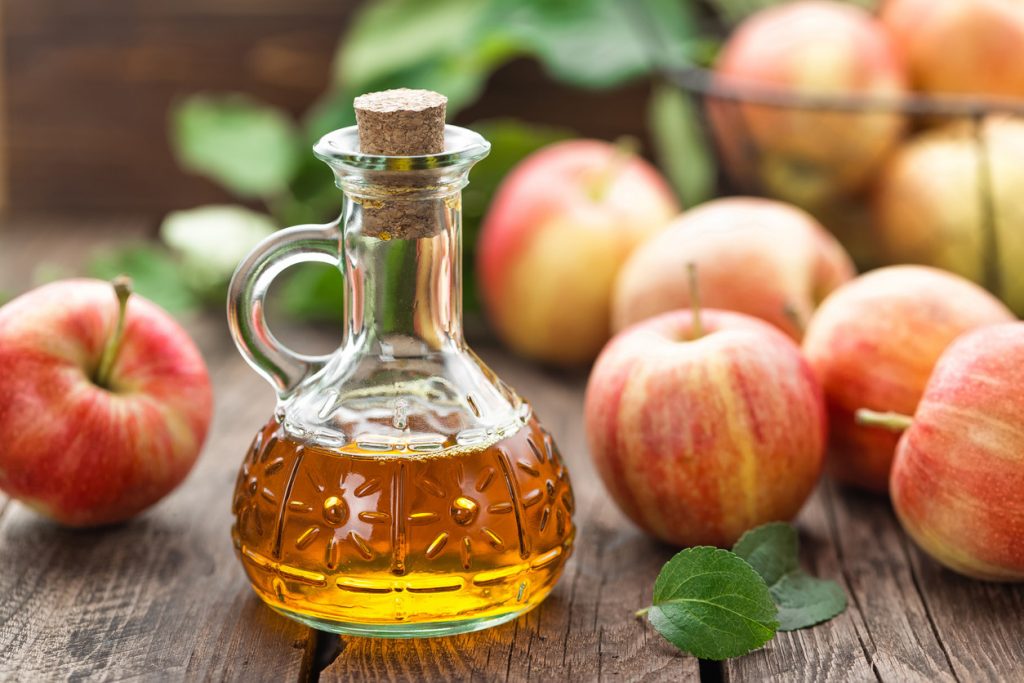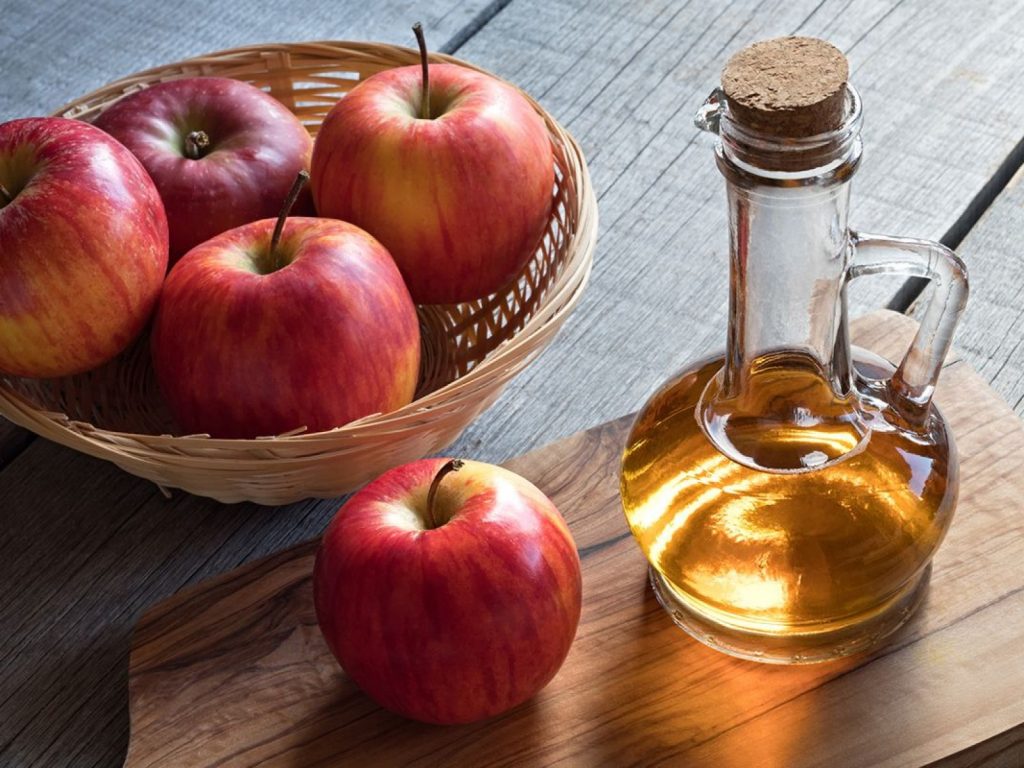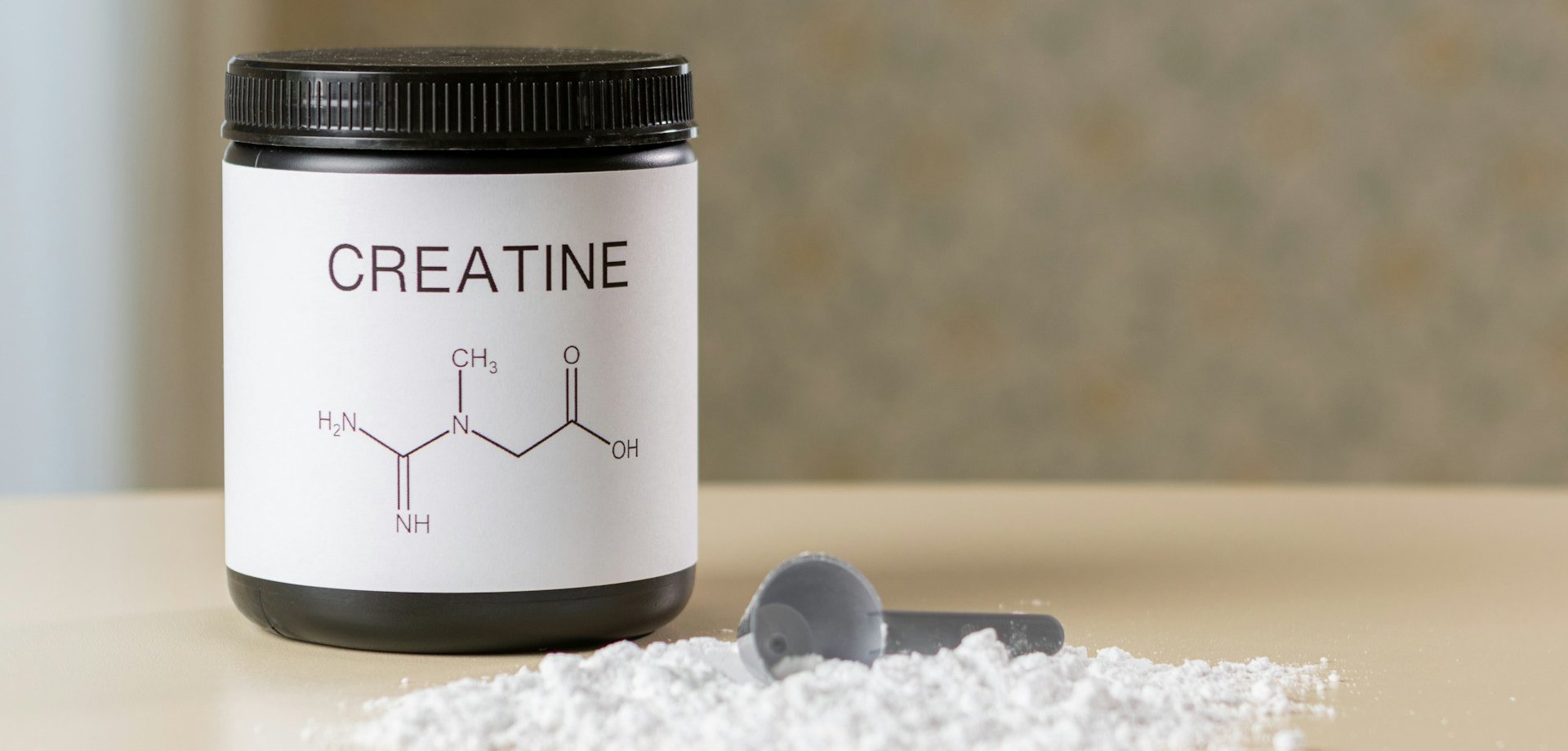Apple cider vinegar
Author:
Julio Valero
Published on:
10/30/2020

Apple cider vinegar may provide some health benefits when taken with meals, such as reducing glucose spikes and suppressing appetite. That said, the magnitude of the benefits is unclear, and excessive vinegar consumption may harm the gastrointestinal tract.
What is apple cider vinegar?
Apple cider vinegar is made from fermented apple juice. It contains acetic acid, the primary component of vinegar, along with trace amounts of various apple-derived phytochemicals. It's a popular home remedy often mixed with lemon juice and coconut oil for additional benefits.
What are the benefits of apple cider vinegar?
It can help control blood sugar levels by potentially reducing the glycemic index of foods. Additionally, it may help reduce appetite and support weight management efforts. Some studies suggest it can decrease food intake and body fat, but further research is needed to determine its unique effects compared to other vinegars.
What are the side effects and drawbacks of apple cider vinegar?
Due to its acidic nature, it can damage tooth enamel and various tissues. Care should be taken when applying it to sensitive skin, consuming it excessively, or consuming pickled foods. There is a link between pickled foods and gastric cancer, but the exact connection is unknown. It is believed that vinegar may play a role.
How to take
SIt is recommended to take 30 ml daily, spread over the meals of the day.

Human effects matrix
This summarizes the studies that have been done on humans to explain what effects apple cider vinegar has on the body, how much evidence there is, and how strong the effects are.
Analysis Aspect | Result | |
Blood Glucose | Post-meal blood sugar levels are influenced by insulin sensitivity. Individuals with insulin resistance may experience a greater reduction in blood sugar compared to those with normal glucose clearance. While one study showed a benefit in fasting blood sugar levels for individuals with type 2 diabetes, another study found no significant effect in individuals with normal fasting blood sugar levels. | |
Insulin | While some studies suggest a reduction in postprandial insulin levels after apple cider vinegar consumption, many others have not found such an effect. One study examined fasting insulin levels and observed a comparable decrease in the apple cider vinegar group compared to the placebo group in patients with type 2 diabetes. Another study also looked at fasting insulin and found a slight reduction in the low-dose group (15 ml) but no significant change in the high-dose group (30 ml). | |
Appetite | Studies using the Simplified Nutritional Appetite Questionnaire found a slightly greater reduction in appetite among participants in the apple cider vinegar group compared to the placebo group. While more research is needed, spontaneous reductions in caloric intake are common in other studies, supporting the potential of apple cider vinegar as an appetite suppressant. | |
Body Fat | A study involving obese participants found a small reduction in weight over 4 weeks with 15 and 30 mL doses of apple cider vinegar, but not with a placebo. The 30 mL dose showed the greatest reduction. Both apple cider vinegar groups reported lower energy intake compared to the placebo group, with the 15 mL group reporting the most significant decrease. It's important to note that self-reported energy intake may not be entirely accurate. | |
C-reactive protein | One study found a very slight increase in the apple cider vinegar group and a decrease in the placebo group. It's not clear why this was the case, and more studies are needed to verify this. | |
Lean Mass | One study found a reduction in the apple cider vinegar group, although it is possible that the effect was due to a reduction in caloric intake and overall weight loss. | |
Neuropeptide Y | No reliable result was obtained regarding increase or decrease, these tests need to be done again. | |
Triglycerides | One study found a reduction in the 15 ml and 30 ml groups, but not for the placebo, while another study found a small increase. More research is needed to determine what can be expected from apple cider vinegar. | |
Weight | A study of overweight individuals found weight reductions in both the 15 ml and 30 ml apple cider vinegar groups, but not in the placebo group. Over four weeks, the low-dose group lost 1.2 kg, while the high-dose group lost 1.9 kg. Both vinegar groups reported lower energy intake compared to the placebo group, with the low-dose group showing the greatest reduction. It's important to consider that self-reported data may not be entirely accurate. | |
Blood pressure | While one study found a modest reduction with 30 ml, another study failed to find a larger reduction with 20 ml. More research is needed before we know if and when apple cider vinegar can have a reliable effect on blood pressure. | |
General Oxidation | In one study, no difference in malondialdehyde was found with 20 ml per day for 4 weeks, although the placebo group experienced a considerable increase. So, the difference was significant, it is not clear whether this is a genuine effect of apple cider vinegar, so further studies are needed. | |
Glycemic Control / Insulin Sensitivity | One study found improvement in the 15 ml group and not in the 30 ml group, while another study noted no effect. More research is needed to evaluate the effects of apple cider vinegar, independent of weight loss. |
|
HDL-C | A clear effect has not been observed in any study. | |
HbA1c | One study found a significant reduction in non-diabetics, while another study found no difference compared to placebo. More research is needed, particularly in type 2 diabetics. | |
Homocysteine | One study found a small reduction in the apple cider vinegar group but an increase in the control group. It is unclear whether the difference is a genuine effect of apple cider vinegar. | |
LDL-C | No significant effect in two studies conducted. | |
Total cholesterol | In one study, a slightly greater reduction was seen with 15 ml and 30 ml compared with placebo, while there was a slight, insignificant increase in another. |

Things to keep in mind
Among the functions that apple cider vinegar offers us, is fat loss and insulin sensitivity. It is known by some as ACV.
It's important to note that reductions in fat mass and weight are primarily due to caloric deficit, not solely from consuming vinegar. While some individuals may experience reduced appetite, this effect is not guaranteed and may vary from person to person.
To be more objective, in a calorie deficit, if apple cider vinegar helps reduce appetite and sticking to the calorie deficit can be good, otherwise it will have no effect if taken out of context.
If you want to see the studies I used for this analysis, you can go to the website: https://examine.com/supplements/acv/#
Comparte en redes sociales
Recent posts

A bad night's sleep: a reason to stay up even longer?

Creatine Effectiveness: What Does Science Say About Its Benefits?

Does meal timing help you lose fat?

Is your triceps press building muscle or holding you back?

Nutrition tailored to you: based on your genetic profile.

Carbohydrates: the key to an explosive workout.